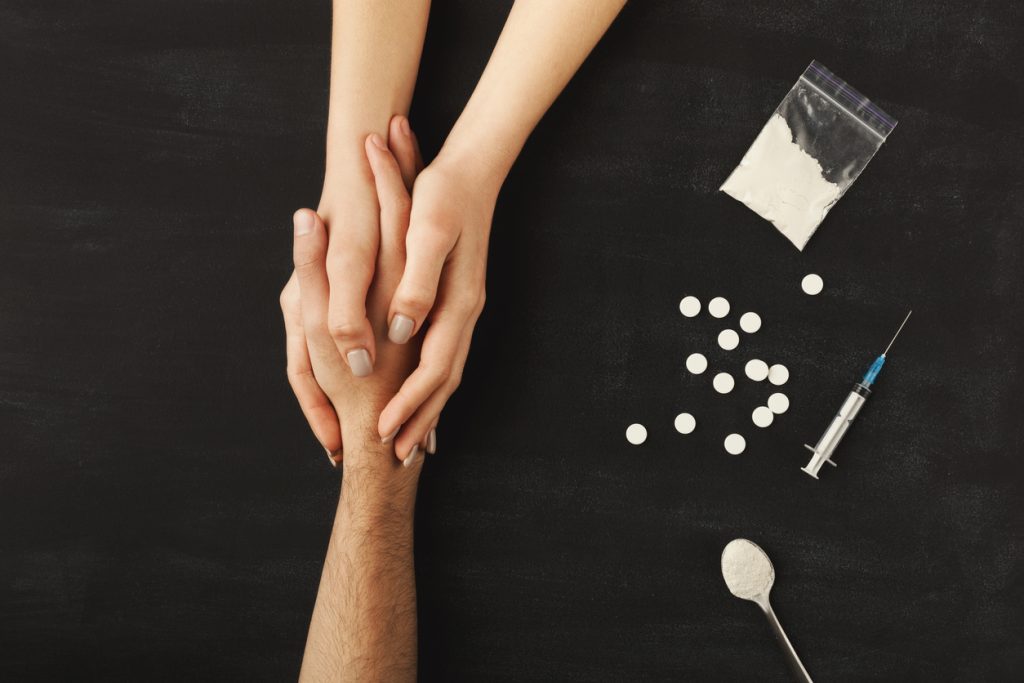Although it seemed for a time that the nationwide opioid epidemic was starting to get under control, the isolation and social disconnection due to the COVID-19 pandemic has thrown America’s opioid crisis into overdrive. Throughout towns, cities, counties, and states throughout America, the number of fatal and non-fatal opioid overdoses are rising, and more and more individuals are in need of detox and treatment for opioid addiction.
Although America’s opioid crisis is an ongoing national story, regularly covered in the news media and in publications, because opioids are often prescribed, there is still some concern that people do not know what to look for regarding if they are developing a physical dependency to, substance use disorder with, or full-blown addiction based on opioid use or opioid misuse. The thought still prevails for some people that because opioids are being prescribed by a doctor, they are safe, and therefore many people do not know the signs and symptoms of an opioid addiction.
Do you or a loved one have an addiction to opioids? Is someone you know struggling with opioid addiction or opioid abuse? How can you tell? Do you even know what to look for?
What to Know About Opioids and Opioid Addiction:
What are Opioids?
Opioids are a class of drugs that include both legal and illegal substances. Some examples are illegal heroin or legal prescription narcotics that relieve pain and are prescribed by a medical professional. Opioids are naturally found in the opium poppy plant. These substances work in the brain to produce a variety of effects, the most profound being the relief of pain. Some well-known opioid narcotics are OxyContin, Percocet, Vicodin, fentanyl, morphine, codeine, and heroin.

Dangers and Risks of Opioid Addiction
Opioids carry with them inherent risk. The first is that users of opioids, whether for legitimate pain or through recreational drug use to get high, easily can become physically dependent on them. This means that over a short period of time, the user will need to continue to take opioids or feel sick. Outside of physical chemical dependency, opioids carry with them a high risk for misuse, abuse, and addiction.
Signs and Symptoms of Opioid Addiction
There is not a single sign or symptom that someone may be addicted to opioids or be suffering from opioid dependence or opioid addiction. The signs or symptoms of opioid addiction can be physical, psychological, or behavioral in nature.
Physical signs that someone is suffering from an opioid addiction could be the physical signs of physical opioid dependence or the physical symptoms someone is having when they are in withdrawal from opioids. Some of these may include:
- Feeling like they have flu-like symptoms when they haven’t taken an opioid after several hours or an extended period of time
- Nausea or vomiting
- Diarrhea
- Constipation
- Drowsiness or falling asleep
- Being unresponsive when sleeping
- Slowed breathing
- Slurred speech
- Loss or coordination
- Sweating and shaking
- Hot and cold sweats
- Muscle aches or muscle cramps
Some of the psychological signs or symptoms of opioid addiction may include:
- Irritability
- Depression
- Increased anxiety when not taking opioids
- Anxiety attacks or panic attacks
- Lowered motivation or apathy
- Drastic changes in sleep patterns
- Drastic changes in mood or drastic mood swings
- Loss of interest in things they used to enjoy
- Poor decision-making
- Financial hardships or financial problems
- Not meeting life responsibilities or abandoning responsibilities
- Becoming withdrawn from family, friends, and loved ones
While there is not one single sign or symptom that may determine if a loved one is suffering from opioid addiction, the presentation of several or many of these signs and symptoms will be a good clue that a family member may have an opioid addiction or be suffering from a substance use disorder. Fortunately, while many individuals that are suffering from opioid addiction are scared or resistant to getting help, detox and treatment provide excellent options that will safely and comfortably get someone off opioids and engage in recovery. A medically managed detox facility will allow an individual to be appropriately monitored through their detox, using FDA-approved medications to make the detox safe and comfortable. Once through withdrawal, the person can engage in important treatment and recovery support, that will allow them to begin a journey of recovery free from substances and that will allow them to live a high quality of life.
If you or someone you know needs help for addiction or co-occurring disorders, please give us a call. Innovo Detox offers the latest in evidence-based medical, psychiatric, and clinical care for those in need of detox and medical stabilization in Pennsylvania and the surrounding Mid-Atlantic area. If we aren’t the best fit for you or a loved one, we will take the necessary time to work with you to find a detox, rehab, treatment center or provider that better fits your needs. Please give us a call at (717) 619-3260 or email our team at info@innovodetox.com. For more information on our company or services, please visit our website at www.innovodetox.com.
